One of my favourite things about Broken Roads is that every second sentence there’s a word that’s highlighted, and you can press a button to see a little pop-up explaining what that word means. That word is inevitably a piece of Australian English, and the developers felt the need to include a complete glossary so that non-Australians could figure out what was actually being said.
Related reading: We need more games that are not Japanese or “Western” in culture and theme.
In every other way, Broken Roads plays out like a classic Fallout (as in, before Fallout 3) or Wasteland. It’s a post-apocalyptic, gritty, hard western that likes to challenge the player’s morality almost as much as it does throwing them into deadly situations. But it’s also Australian. Not in a Crocodile Dundee over-the-top caricature to appeal to the stereotypical “understanding” of Australia that other places in the world seem to think is cute. No. It’s as Australian as Fallout is American. It just is, and that’s appealing.
There are certainly raw edges to the game. For one thing, the quest structure likes to indulge fetch quests and other rather generic breadcrumb trails that don’t do the strong storytelling and characterisation justice. For another, the opening half a dozen hours or so will convince you that you are playing something modelled after Disco Elysium or Planescape: Torment. There’s almost no combat and most encounters can be talked through. But then, after that point, you’ll start running into enemies that are unavoidably hostile and then, depending on how you’ve been levelling up your character, things can become unfathomably difficult. There’s some pacing and balance issues there, and if the developers did want the combat to be a feature, they needed to find some more opportunities for it up-front.
However, perhaps the biggest problem with Broken Roads is also its most standout feature: There’s a complex morality system at play where a large number of decisions that you make belong to one of four different “schools of thought”: Humanist, Utilitarian, Nihilist and Machiavellian.
Now, without getting too deeply into this, I think the developers need to take another hard look at what they understand these philosophies to be. To play like a Machiavellian character, at least how Broken Roads envisions it, means that you’re a power-hungry, violently anti-social psychopath. Almost every decision results in you spreading total misery and/or getting innocents killed for your personal gain.
I am not defending the philosophy of Nicollo here, because it’s horrible in so many ways, but this isn’t truly Machiavellian thought. Machiavellians simply believe that a ruler needs to be willing to act unscrupulously at the right times – selectively, and not all the time – in order to retain power. Or to put that more simply: Machiavellians essentially believe that the ends justify the means when it comes to leadership, not personal gain. However, most of the “Machiavellian” decisions that you make in Broken Roads are so mean-spirited that it’s hard to understand what the “ends” even are. All the “means” suggest is that you’re furious at the world and you’ll do whatever you like within it, with little regard for authority or the social cohesion around you. That’s not Machiavellian morality. That’s Ayn Rand’s Objectivism. Now, I realise that it might be loaded to put that term in the game and then attach all the psychopathic decisions to it. There are more Libertarians than Machiavellians out there (and they can be such noisy people), but nonetheless, the moral quadrants in Broken Roads are core to the experience and the developers needed this to be defensible.
It’s not just that one quadrant, either. Humanism, as a philosophy, is a stance that is very focused on the agency of the individual – its very core is freedom, autonomy, and societal progress through respect for those qualities. In Broken Roads, many of the decisions you make can result in you belonging to this quadrant, but being weirdly comfortable with the idea of indentured servitude, which a lot of characters in the game’s cities are pushed into. Really, the humanist should find this intolerable enough to be actively resisting right from the outset.
To be clear, I loved what the developers were aiming for with this system, and it’s fully fleshed out – the decisions that you make can very heavily impact on what pathways are available to you further down the track, and branch out in a way that is impressively complex. The way other characters respond to you is also impressively authentic and based on the decisions you make, so it feels like a cohesive and authentic “political compass” system that’s ticking along behind the storytelling. However, in contrast to something like Disco Elysium, where the writers comprehensively nailed the political decisions so that if you played as a communist you were making very appropriate communist decisions, Broken Roads feels like it came from people who missed a couple of classes on political theory.
For all I’ve said above though, I must re-emphasise that the writing is really excellent and engaging. The developers have done an incredible job in building a bleak and blasted world, where efforts to retain a semblance of civilisation seem almost naïve and like they stem from a sense of denial. One of the first major plot arcs involves an upcoming election to vote for the leader of one of the remaining outposts of humanity, and it comes across like nothing more than a sham effort to try and retain some sense of normalcy and order within the world. It’s a brilliant bit of world-building, and that’s just the start.
Then your party will head out to a nearby location and come across a big pile of heaped up bodies. Broken Roads has more than a touch of Mad Max savagery within it. There is a distancing factor because it plays from a top-down isometric perspective, so the visual impact isn’t too extreme, but the writing is strong enough to leave you feeling chills in just the right manner.
The game’s combat system – when you do finally start to play around with it – is highly functional. It works nicely as being both turn-based and vaguely XCOM-ish in execution, but it’s also hard to shake the feeling that the developers put it in there more out of a sense of obligation than for it to be a major part of the game’s experience. It’s not completely without depth, as there are several statistics that determine the success of melee and ranged attacks… and you do have a lot of control around the party that you bring with you. Basically, if you’ve played a classic RPG before, then you know how Broken Roads plays, but in an era where the likes of Pathfinder, Baldur’s Gate 3 and Rogue Trader are still in recent memories, the combat is the one area where Broken Roads doesn’t compare well.
On the other hand, what you probably haven’t seen is a game that quite looks like Broken Roads. The developers have done an exceptional job in capturing the unique, very arid qualities of the Australian landscape, and that can’t be overlooked as a distinguishing factor.
There aren’t too many truly authentic games set in Australia, made by Australians, telling Australian stories. Broken Roads is one, and it is one of the most different and interesting games you’ll play this year on that basis alone. Yes there are more refined RPGs out there, but none of those will take you on a crash course through Australian mannerisms while delivering a compelling narrative of human resilience, community, weakness and savagery.
Buy the hottest games with Amazon.
By purchasing from this link, you support DDNet.
Each sale earns us a small commission.
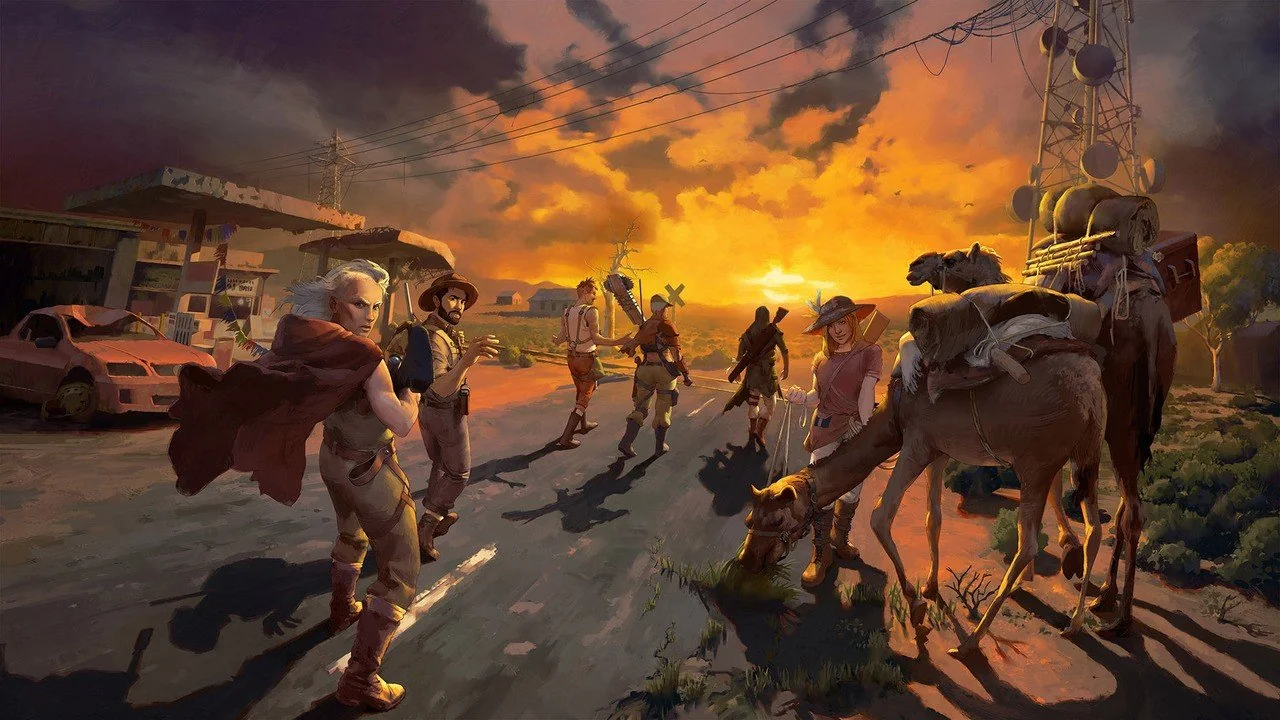

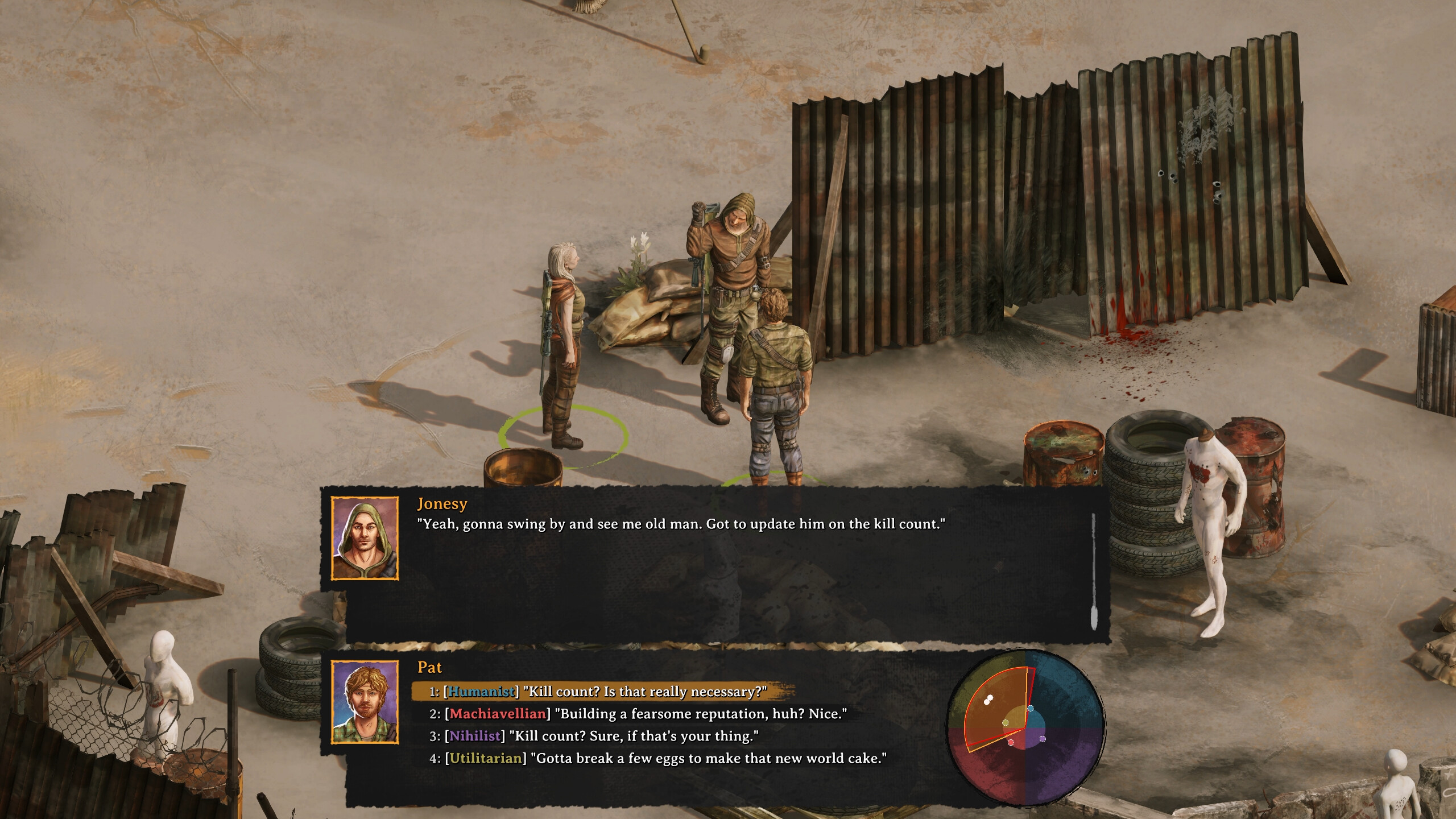
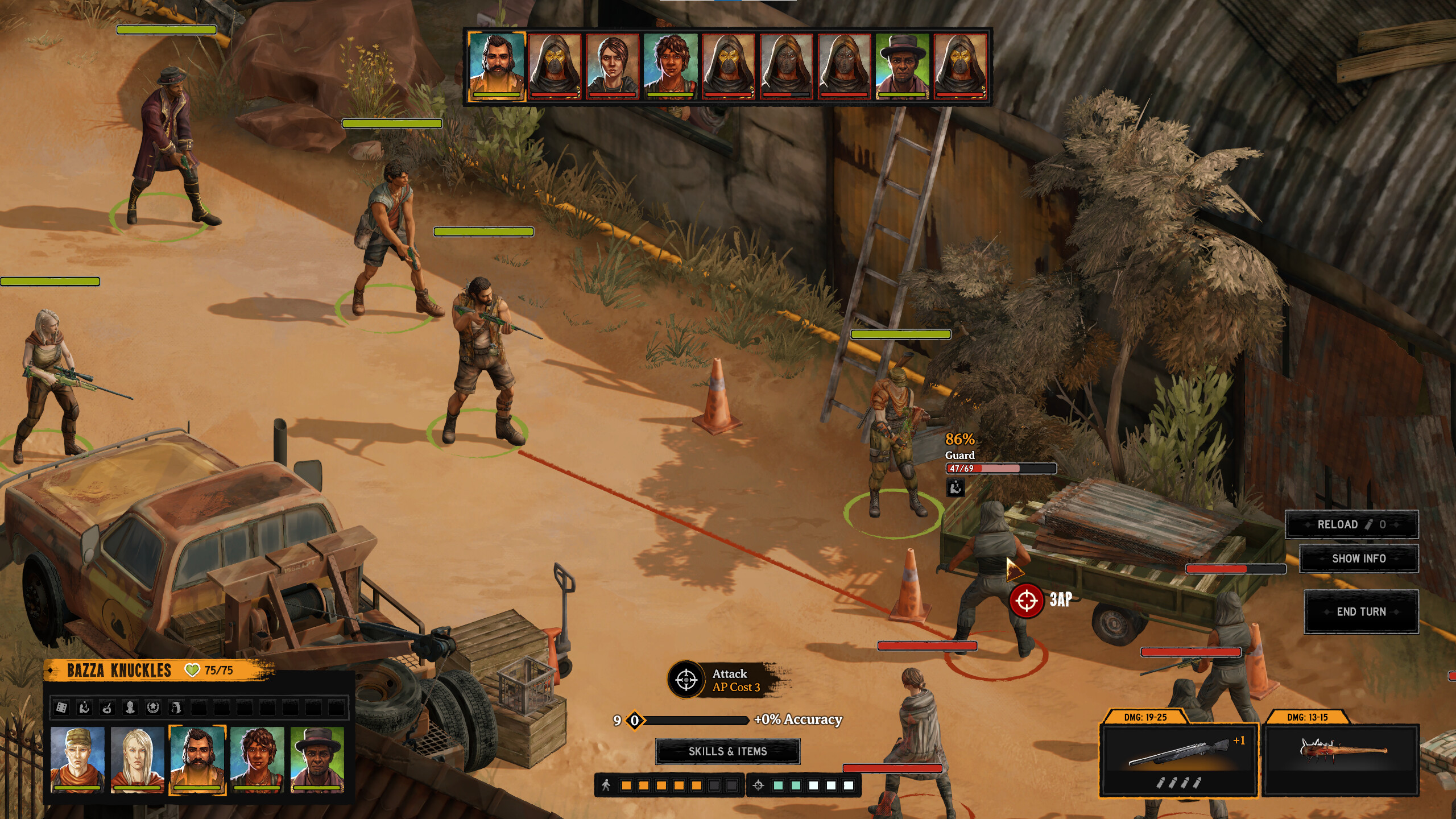
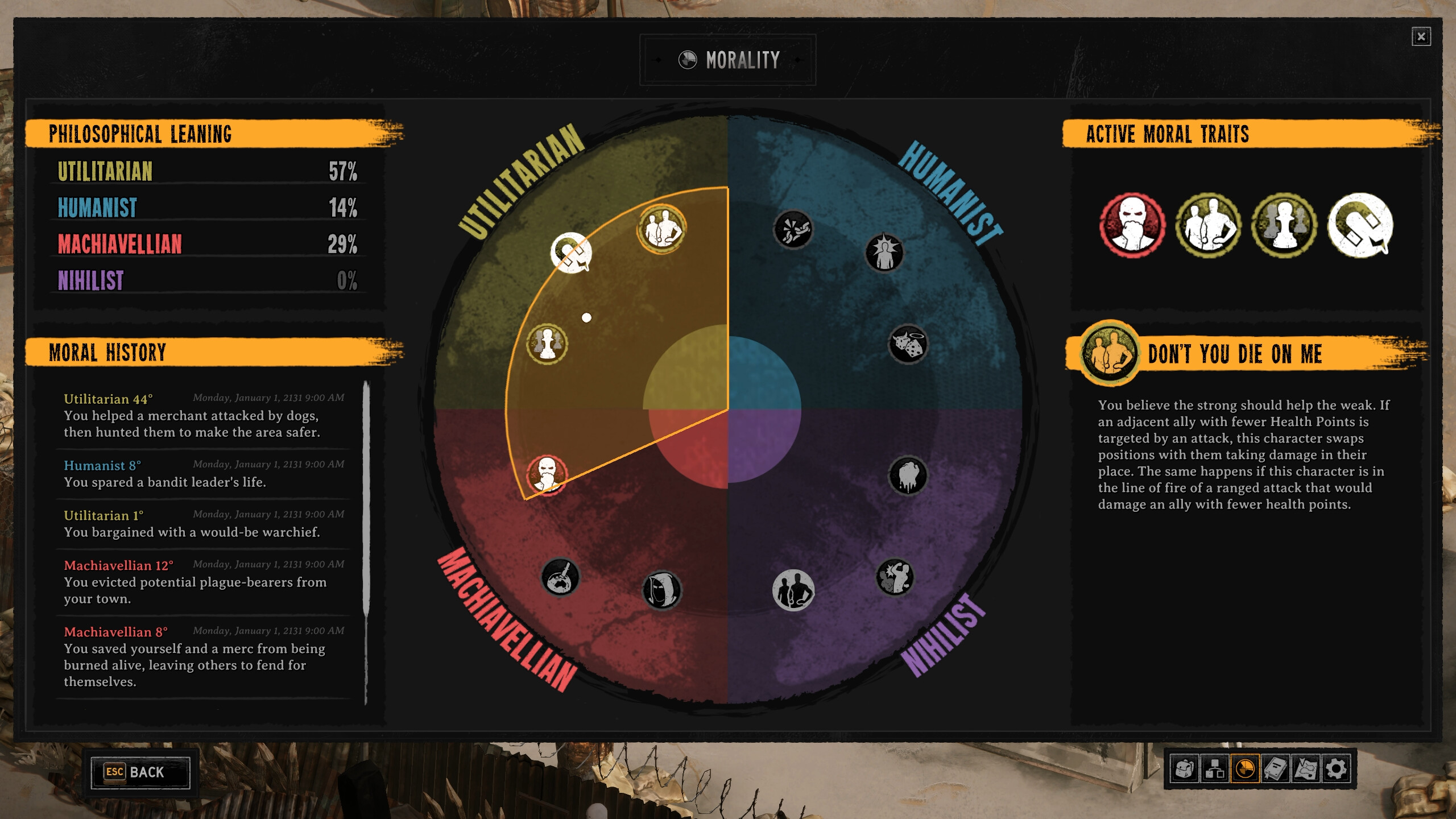
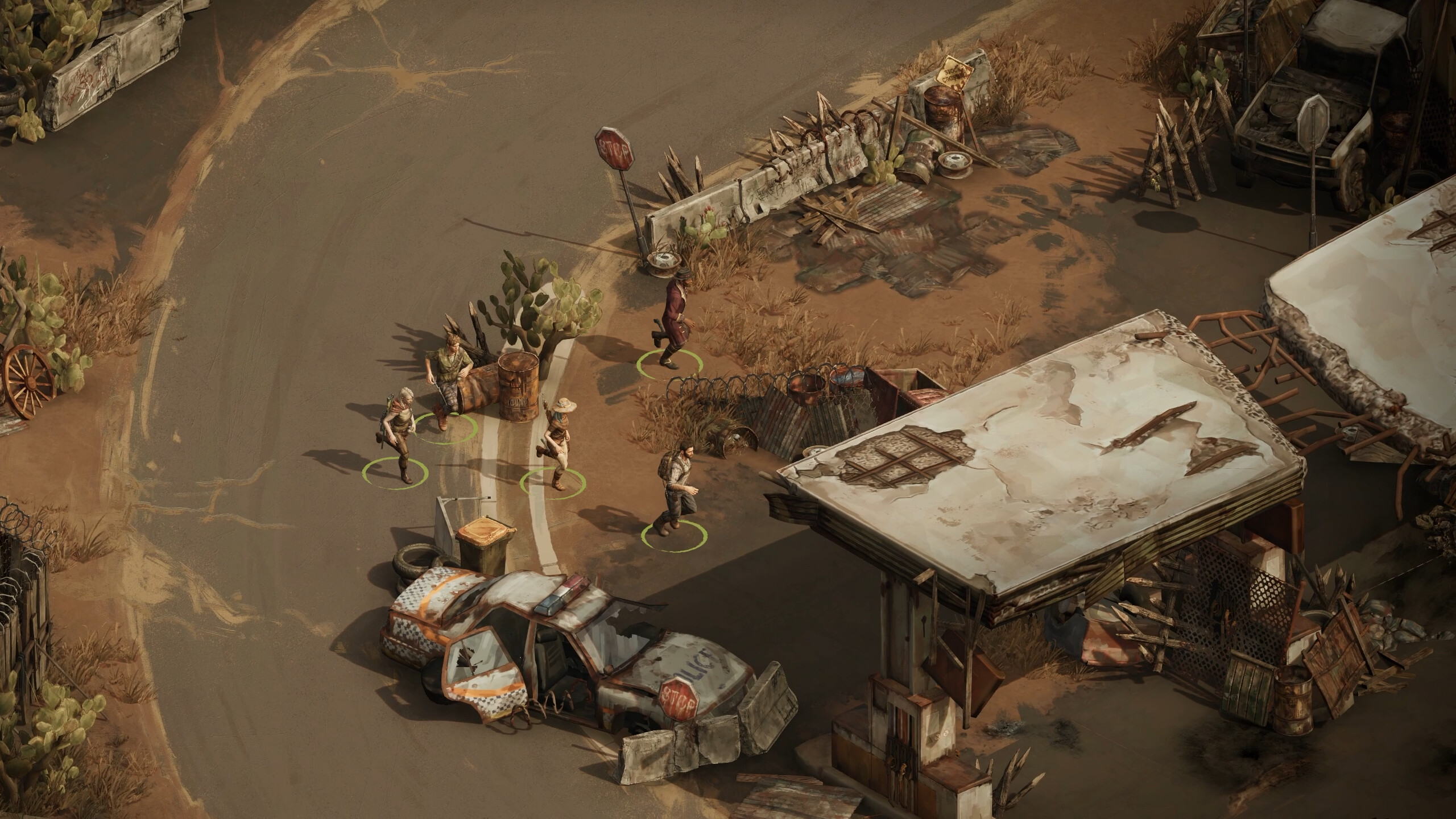

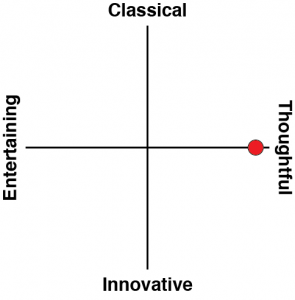








At this point, I have to give half a pass to any person who makes honest mistakes on political theory. How could they not, right?
1. It’s a complex topic ; 2 there’s bad actors broadcasting a distorted political worldview, further muddling our understanding. One such attack are the constant attempts to discredit the Humanities as a loci of knowledge, be it scientific or artistic.
Usually I have to be surprised when the average person is not mostly wrong, drowning on US’ reactionary neoliberal ideologies.
I’ve been surprised that a couple modern JRPGs have been trying to explore what’s outside those constraints. Even if the end results can be messy, conflicting or veiled in layers of abstraction. Games like triangle strategy, octopath II, persona and trails series have much more hits than misses in that exploration.
I think what caught my attention is the contrast these jrpgs create with the cinicism dominating AAA western games, without appealing to that fairytale innocence of classic jrpgs.